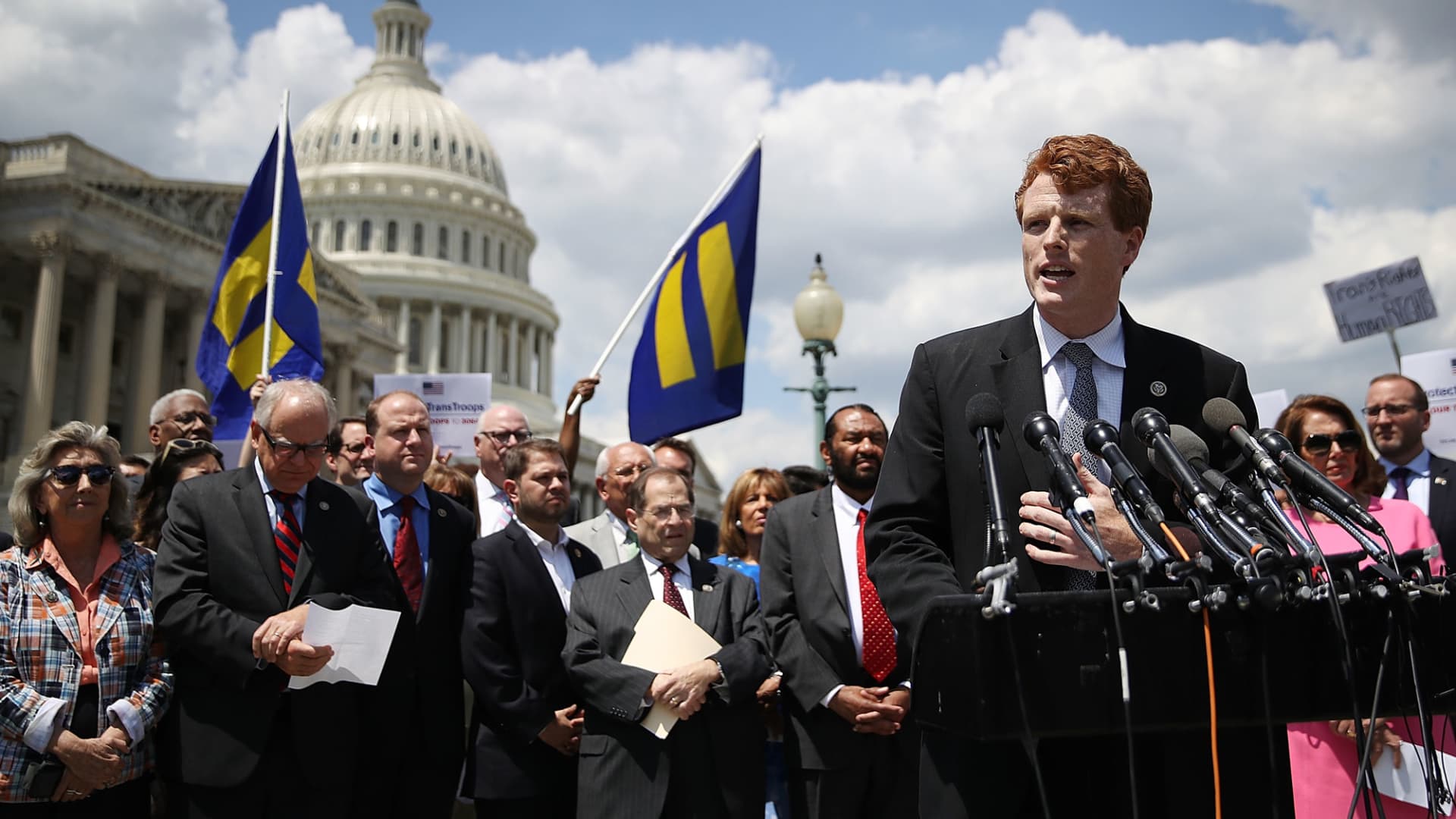Is Trump's Transgender Military Ban Fair? A Balanced Perspective

Table of Contents
The Arguments For the Ban
Proponents of the ban on transgender service members often cite several key arguments, though many lack substantial evidence.
National Security Concerns
Some argue that the inclusion of transgender individuals compromises military readiness and operational effectiveness. Concerns frequently raised include:
- Increased medical costs: The assertion is made that hormone therapy and gender confirmation surgeries are excessively expensive.
- Deployment limitations: It's argued that transition-related medical care could restrict deployment options.
- Disruption to unit cohesion: Some believe the presence of transgender individuals could negatively affect unit morale and teamwork.
However, these claims often lack concrete evidence. Studies have shown that the medical costs associated with transgender care are often comparable to other military healthcare expenditures. Furthermore, focusing on individual capabilities, rather than making sweeping generalizations about an entire group, is crucial. The vast majority of transgender service members are perfectly capable of fulfilling their duties.
Cost and Resources
Proponents of the ban frequently suggest that accommodating transgender service members would place an undue burden on military resources. They highlight:
- The high costs associated with hormone therapy.
- The expenses related to gender confirmation surgeries.
- The overall increased healthcare costs.
However, this argument overlooks the potential long-term savings of retaining highly qualified and dedicated individuals. The cost of training a new recruit often outweighs the cost of providing necessary healthcare for a transgender service member. A comprehensive cost-benefit analysis would likely reveal a more nuanced picture.
Maintaining Traditional Standards
Some believe the ban upholds traditional military standards and expectations, emphasizing:
- Stringent physical fitness requirements.
- The perceived necessity of maintaining combat readiness.
- The preservation of unit cohesion.
This argument, however, neglects the evolving nature of the military and the changing understanding of inclusivity. The idea of "traditional standards" is not static; it evolves alongside societal progress and advancements in military practices. A truly modern military embraces diversity, recognizing that it fosters innovation and strength.
The Arguments Against the Ban
Critics of the ban strongly contend that it is discriminatory and violates the fundamental rights of transgender individuals.
Discrimination and Human Rights
The ban is widely seen as a violation of equal opportunity and a clear instance of discrimination. Key concerns include:
- Violation of equal protection under the law.
- Increased potential for harassment and discrimination within the military.
- Ethical concerns about excluding qualified individuals based on gender identity.
Numerous legal precedents and international human rights frameworks support the right to serve one's country irrespective of gender identity. The ban undermines these principles and sets a dangerous precedent.
Loss of Qualified Personnel
The ban results in the exclusion of potentially highly skilled and dedicated individuals from serving, leading to:
- A significant loss of talent and expertise across various military branches.
- A negative impact on overall military morale and diversity.
Many transgender individuals possess exceptional skills and are eager to contribute to national defense. Excluding them represents a substantial loss of potential, diminishing the capabilities of the armed forces.
Impact on Military Morale and Recruitment
The ban creates a hostile environment and negatively impacts recruitment efforts by:
- Alienating potential recruits who value diversity and inclusion.
- Undermining initiatives aimed at fostering diversity and inclusion within the military.
A diverse and inclusive military is a stronger military. The ban sends a message of intolerance, which could deter talented individuals from considering a career in the armed forces. Maintaining a culture of respect and acceptance is paramount for recruiting and retaining top talent.
The Legal and Political Landscape
Understanding the legal and political context is crucial to grasping the complexities surrounding the transgender military ban.
Court Challenges and Legal Precedents
Numerous lawsuits challenged the ban, resulting in evolving legal interpretations and precedents. These legal battles significantly shaped the ongoing discussion about transgender rights in the military.
Policy Changes and Current Status
The policy regarding transgender service members has evolved since the initial ban, with subsequent administrations making alterations to the rules governing their service. Understanding the current status is essential for comprehending the present reality of transgender service in the military.
International Comparisons
Comparing US policy to those of other countries provides valuable context. Many nations have successfully integrated transgender individuals into their armed forces, demonstrating that it is possible to balance national security with human rights considerations.
Conclusion
The debate surrounding Trump's transgender military ban is complex and far-reaching. While concerns regarding cost and readiness were raised, the ban's discriminatory nature and its detrimental impact on military morale and recruitment are compelling counterarguments. A truly fair and inclusive military policy prioritizes the skills and dedication of all qualified individuals, regardless of gender identity. Continuing to research the nuances of this vital issue and considering the long-term effects of policies related to transgender military service is crucial. Let’s work towards a more just and inclusive environment for everyone who wishes to serve their country. Let the discussion about transgender military service continue.

Featured Posts
-
 Why Middle Managers Are Essential For Company Success And Employee Well Being
May 10, 2025
Why Middle Managers Are Essential For Company Success And Employee Well Being
May 10, 2025 -
 Projet Viticole Aux Valendons Dijon 2500 M De Plantation
May 10, 2025
Projet Viticole Aux Valendons Dijon 2500 M De Plantation
May 10, 2025 -
 Ivan Barbashevs Ot Goal Golden Knights Even Series Against Wild With Game 4 Win
May 10, 2025
Ivan Barbashevs Ot Goal Golden Knights Even Series Against Wild With Game 4 Win
May 10, 2025 -
 Growth Opportunities Pinpointing The Countrys Hottest Business Areas
May 10, 2025
Growth Opportunities Pinpointing The Countrys Hottest Business Areas
May 10, 2025 -
 The Cost Of Perus Mining Ban 200 Million In Lost Gold Revenue
May 10, 2025
The Cost Of Perus Mining Ban 200 Million In Lost Gold Revenue
May 10, 2025
